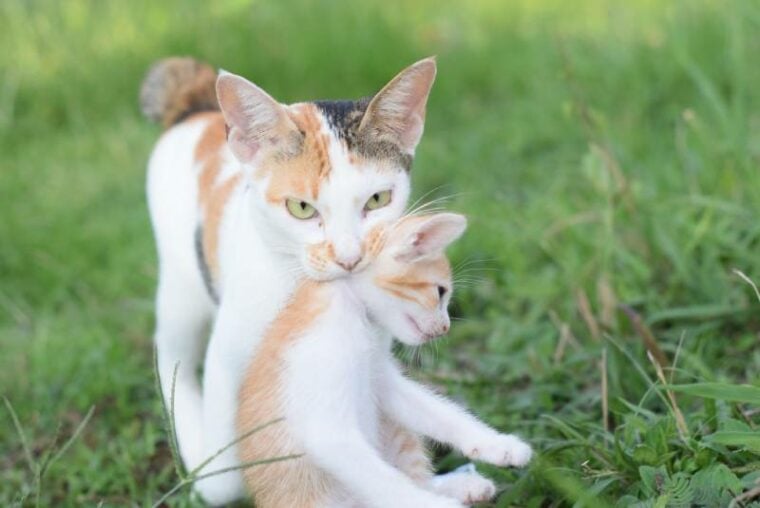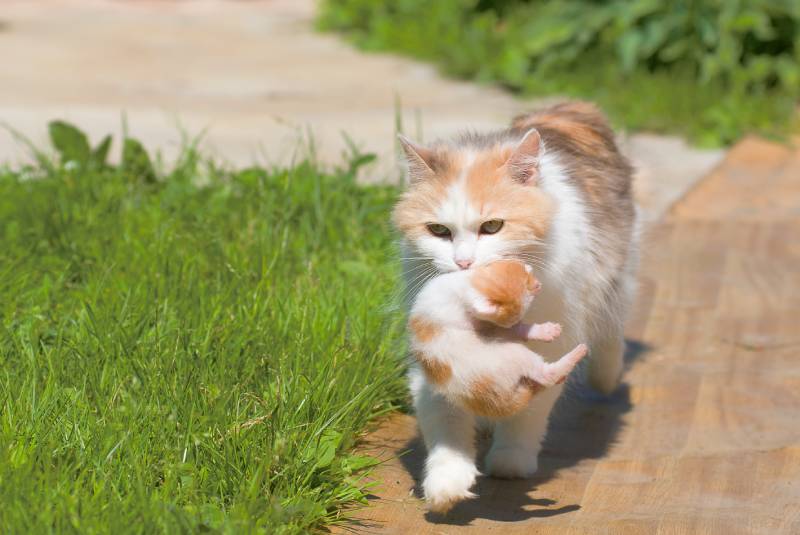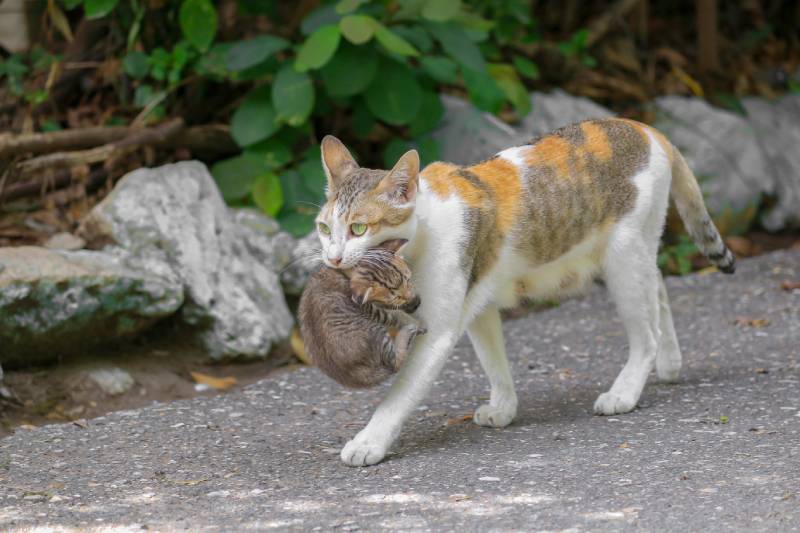
Feral cats are known to be independent and reclusive. But when it comes to their kitties, they can move them around quite often, leaving many of us wondering just how often feral cats move their kittens. It’s pretty frequent, as it turns out, around once a week. But why?
That’s what we’re here to explore. We’ll go over why feral cats move their kittens, how often they do so, and some tips for handling it if you find kittens in your area.

Why Do Feral Cats Move Their Kittens?
When it comes to their kittens, feral cats are incredibly protective. If they sense any hint of danger or become short on nutritional and shelter sources, they are likely to relocate in search of safer grounds.
Sometimes, the humans or other animals being around can also disturb the cats and their young, prompting them to seek a new home. Feral cats will always seek a safer spot with more resources to ensure their kittens’ safety.

When Do Feral Cats Move Their Kittens?
Feral cats will often move their kittens once they’re about five weeks old and have begun to explore the area around them.1 The ideal time for relocation is when the kitties are still young, as this makes it easier for the mother cat to move them without too much effort.
Additionally, they may also make several trips in a week to ensure the kitties are safe and taken care of. Their natural proclivity to seek out safety and resources means that they may move the kittens every few days or so.
How Do Feral Cats Move Their Kittens?
Feral cats will usually carry their kittens in their mouths, as this is the safest and easiest way. What looks painful to us is actually incredibly natural for cats.
They may also encourage them to follow or move them one by one if they need to make multiple trips. No matter the method, though, feral cats are incredibly protective and will always ensure their kittens’ safety.

How to Handle Feral Cats with Kittens
For any feral kittens you encounter, it is best to refrain from interacting with them. It’s normal to feel inclined to help, but interfering with a feral cat and its kittens can be dangerous for you and the cats.
The best thing to do is to observe them and ensure their safety by providing food and shelter, if possible. Doing this will also help with the cats’ relocation process, providing them with more resources to care for the kittens.
Only in an emergency should you intervene and attempt to rescue the kittens. Otherwise, it’s best to leave them be and let nature take its course.
If you are concerned about the cats’ welfare, take comfort in knowing they have survived this way since ancient times. Cats intrinsically know what to do and can handle themselves with no problem!
What Age Do Feral Cats Leave Their Kittens?
Feral cats will typically leave their kittens after they’re six weeks old, as this is when they are no longer completely dependent on the mother for survival. That being said, some mother cats may stay longer if they feel their kittens need more protection and resources.
And even when kittens start to explore, a new communication system with the mother is developed, continuing the next stage of learning.

Summary
Feral cats move their kittens around quite frequently, usually once a week until about the age of five to six weeks. It’s all part of a feral cat’s instinct to protect its young and keep them safe from potential threats.
Featured Image Credit: Biamillah Jaya, Shutterstock





